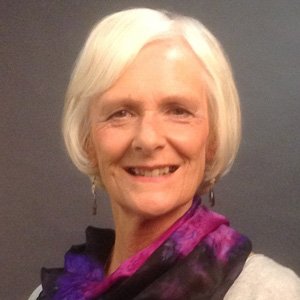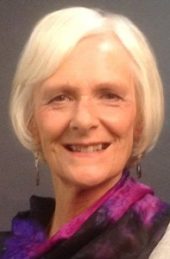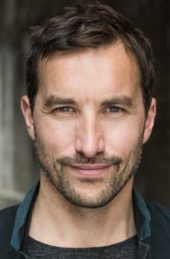What prompted you to choose the period that you wrote your first book in?
In a previous existence I taught history and so have always had an interest in the motivations that stirred men and women in the past. Why would I choose to write about medieval England? It seemed to me that there were some interesting women around six hundred years ago who rarely receive any recognition. History was written by men in an man’s world; women were labelled by their relationships, as wife, sister, daughter. Women, even those with royal connections are voiceless and at best two dimensional. Surely they would have something to say about their lives and the events during these turbulent years. I decided to restore their voice and their place in the great scheme of things.
What is your approach to researching your novels? Has the process changed over the years?
I start with research to create a detailed time line of relevant history events. This is followed by a timeline for my main protagonists to give me a dove-tail of story and history.
When I have an overview of the scope of my novel, I often begin by writing one of the main emotional/dramatic scenes that will have real repercussions in the story. This allows me develop the main characters, to listen to them talk to each other and to react. It may well be that this scene will need rewriting when it fits into the chronology, but that’s fine. If it helps me get a grip on my female protagonist, it is a good starting point.
Then I go to the beginning and start writing the story.
When I first started writing I would have not have have had either the confidence or the experience to dive into the middle of the story in such a way. Now I know how useful it is to see a rounded protagonist before that first page is written, because the first pages of a novel are critical in keeping a reader engaged.
Historical fiction is a great introduction to history. Can you recommend any historians to our readers to learn more about your period?
Ian Mortimer: The Perfect King: Edward III; The Fears of Henry IV.
Anthony Goodman: The Fair Maid of Kent; John of Gaunt.
Matthew Lewis: a whole range of work on the Wars of the Roses and the reign of Richard III.
J L Laynesmith: Cecily Duchess of York.
What three pieces of advice would you give to a budding historical novelist, looking to write and publish their first book?
Perseverance above everything. Keep writing, even on ‘bad days’. Do not let your characters escape you. Do not be disheartened by rejection. It takes an iron will but you can do it.
The story is the main part of historical fiction. Use a light touch with the details of history: a heavy hand can kill the pace and dull the reader’s interest. You are there to tell a good story that will keep the reader engaged from start to finish.
Visit ruined castles, stately houses, tiny churches and magnificent cathedrals, windswept battlefields. Touch the stonework and absorb the atmosphere. Walk through doorways, look out through windows, imagining those who did the same so many years ago. It will bring history to life.
If you could witness one event from history, what would it be and why?
Natural phenomena and their consequences in a superstitious age interest me. I would like to witness the beginning of the Battle or Mortimer’s Cross 1461 when Edward, the new Duke of York, met the Lancastrian army under Jasper Tudor in the Welsh Marches. On that morning there was a parhelion caused by the sun rising through the mist, with miraculous results on a terror-stricken army. Edward claimed that it was the sign of the three sons of York making their claim to the English throne. Did it have an effect on the outcome of the battle? Probably it did, since it was major Yorkist victory.
Which other historical novelists do you admire?
Dorothy Dunnett: the Lymond Chronicles and the House of Niccolo are incomparable.
Diane Norman, also writing as Ariana Franklyn in her Mistress of the Art of Death series.
Mary Renault’s novels of Ancient Greece: The Alexander Trilogy and The King Must Die
When first sketching out an idea for a novel, which comes first – the protagonist, plot or history?
Because I write about real events and real people, particularly the role of women, for me it is usually a combination of all three. The history must be exciting, providing me with the possibility of a page-turning plot. Running together with this there must be a dramatic female protagonist who can legitimately be involved in the story at first hand. Battles are always difficult! If one of the three is missing, then it does not work. When I am certain that all three are present, then I concentrate on the protagonist, on her role in the history and how the plot will develop.
Do you have a daily routine as a writer? Also, how important is it to know other writers and have a support network?
For me daily routine is essential. I am a morning writer, starting early and writing through to lunch time. Even after that when engaged in mundane tasks (when real life creeps in), ideas and conversations appear and so I have a notebook and pen to hand. When I am writing my characters tend to keep me company throughout the day. It is impossible to write every day but I do not stray far or for too long from my characters.
For many writers a support network is vitally important: for advice, support, a helping hand or a shoulder to weep on. For me this is not important. Only when my manuscript is complete is it read by someone else – my agent and my editor. My success/angst are my own
Can you tell us about the project you are working on at the moment?
I am just completing a novel of the marvellous letter-writing Paston family, bedevilled by wills, legal challenges and sieges. There are some splendid women in the Paston story for me to spend time with.




